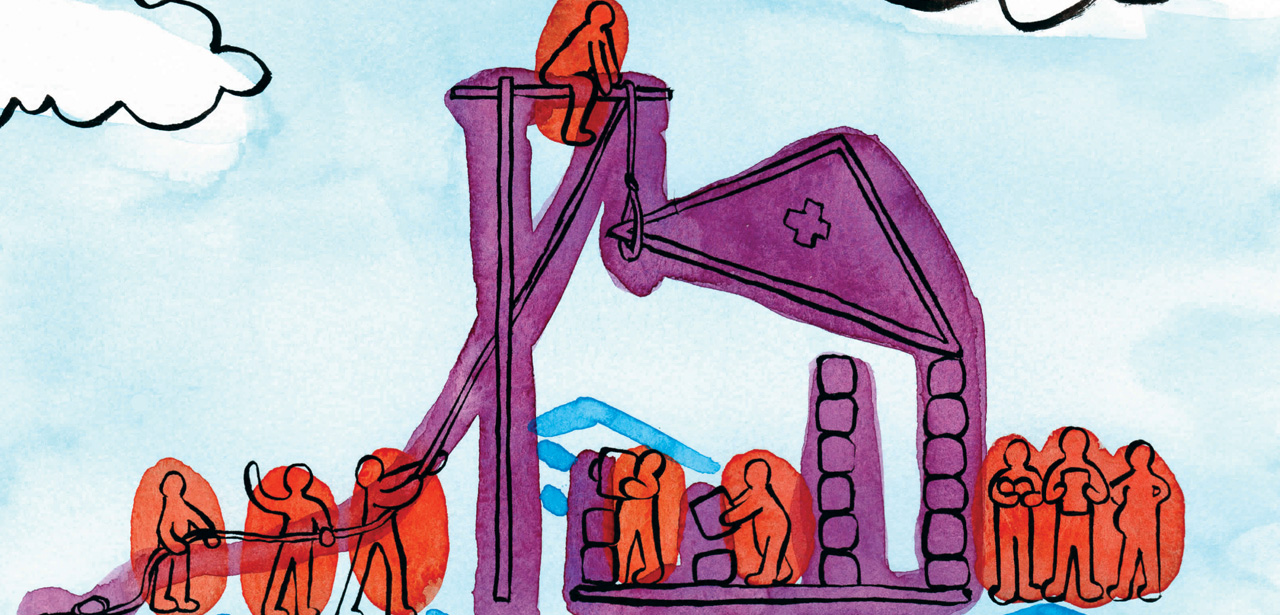Background and objectives: Heatwaves pose an increasing threat. However, there is a significant gap in understanding the impact of extreme temperatures on mental health. This study aimed to examine the associations between extreme temperatures and emergency visits for psychiatric disorders. Method: We conducted quasi-Poisson regressions on emergency visits' rate for psychiatric reasons in French hospitals on days exceeding the percentiles 90, 95, 97.5, 99.5, and 99.9, between June 1st and September 15th, from 2015 to 2022, compared to days whose temperatures were below the 50th percentile during the two fortnights before and after our period of interest. We also examined the cumulative effect of three consecutive days exceeding the specified percentiles. Results: Among the analyzed 1,198,953 psychiatric visits, we found an increased relative risk (RR) for dementia ranging from 5 % to 17 % on days exceeding percentiles 90 (RR=1.05, CI=1.02–1.07), 95 (RR=1.05, CI=1.02–1.08), 97.5 (RR=1.07, CI=1.03–1.11), 99.5 (RR=1.09, CI=1.01–1.17), and 99.9 (RR=1.17, CI=1.03–1.32). The cumulative heat effect also showed an increased risk ranging from 4 % to 44 %. For psychoses, we observed increases from 5 % to 7 % for the cumulative heat effect of percentiles 90 (RR=1.05, CI=1.01–1.08), 95 (RR=1.06, CI=1.02–1.11), and 97.5 (RR=1.07, CI=1.01–1.15). Conversely, mood disorders exhibited a decreased RR from 14 % to 7 % for percentiles 90 (RR=0.93, CI=0.91–0.95), 95 (RR=0.92, CI=0.89–0.94), and 97.5 (RR=0.90, CI=0.87–0.93), as well as for the cumulative effects. Conclusion: This study highlights the associations between weather conditions, extreme temperatures and psychiatric disorders and emphasize the importance of considering mental health management during future heatwaves.
Auteur : Christodoulou N., Laaidi K., Fifre G., Lejoyeux M., Ambar Akaoui M., Geoffroy P.A.
European Journal of Psychiatry, 2024, vol. 38, n°. 3, p. 100249


